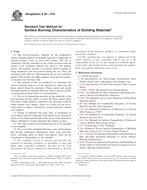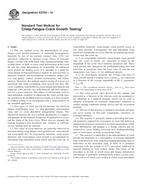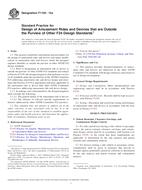1.1 This specification covers deformed and plain carbon steel bars for concrete reinforcement in cut lengths and coils. Steel bars containing alloy additions, such as with the AISI and SAE series of alloy steels, are permitted if the resulting product meets all the other requirements of this specification. The standard sizes and dimensions of deformed bars and their number designations are given in Table 1. The text of this specification references notes and footnotes which provide explanatory material. These notes and footnotes (excluding those in tables and figures) shall not be considered as requirements of the specification.
1.2 Bars are of three minimum yield levels: namely, 40000 [280 MPa], 60000 [420 MPa], and 75000 psi [520 MPa], designated as Grade 40 [280], Grade 60 [420], and Grade 75 [520], respectively.
1.3 Hot-rolled plain rounds, in sizes up to and including 2 in. [50.8 mm] in diameter in coils or cut lengths, when specified for dowels, spirals and structural ties or supports shall be furnished under this specification in Grade 40 [280], Grade 60 [420], and Grade 75 [520]. For ductility properties (elongation and bending), test provisions of the nearest smaller nominal diameter deformed bar size shall apply. Requirements providing for deformations and marking shall not be applicable.
Note 1 – Welding of the material in this specification should be approached with caution since no specific provisions have been included to enhance its weldability. When steel is to be welded, a welding procedure suitable for the chemical composition and intended use or service should be used. The use of the latest edition of ANSI/AWS D 1.4 is recommended. This document describes the proper selection of the filler metals, preheat/interpass temperatures, as well as, performance and procedure qualification requirements.
1.4 This specification is applicable for orders in either inch-pound units (as Specification A 615) or in SI units (as Specification A 615M).
1.5 The values stated in either inch-pound units or SI units are to be regarded as standard. Within the text, the SI units are shown in brackets. The values stated in each system are not exact equivalents; therefore, each system must be used independently of the other. Combining values from the two systems may result in nonconformance with the specification.
Product Details
- Published:
- 10/01/2004
- Number of Pages:
- 6
- File Size:
- 1 file , 48 KB


